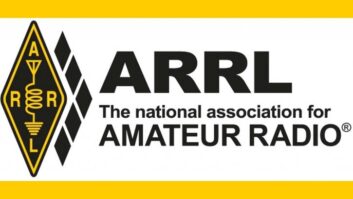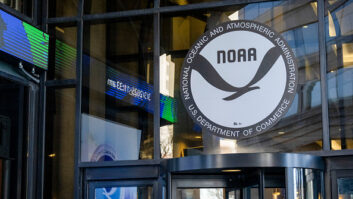WASHINGTON — Planned closings and staff cutbacks at FCC field offices that sparked debate about the impact on enforcement are likely to bring fresh attention to the role of state, rather than federal, laws against broadcast pirates.
The Federal Communications Commission Enforcement Bureau plan will shutter nearly half of its field offices — in Buffalo, Detroit, Houston, Kansas City, Norfolk, Philadelphia, San Diego, Seattle and Tampa — as part of its much-publicized plan to modernize field operations. The FCC in December declined to provide a date for the closings, which a spokesperson described as “an ongoing process.”

iStockphoto/pgaborphotos According to some observers, the move can only hurt the agency’s ability to mitigate interference. “The commission’s enforcement against illegal radio operators, otherwise known as pirates, appears to be in flux,” said one person familiar with the developments.
The commission has the authority to levy fines against unlicensed stations and seize equipment. Through the middle of December, it had issued $90,000 in proposed forfeitures against pirate operators in 2015, according to an FCC spokesperson.
Commissioner Ajit Pai has been especially critical about a perceived lack of action on pirates. The number of enforcement actions against unlicensed broadcasters does appear to be trending downward. According to a DIYMedia.net, an online blog that follows FCC enforcement issues, the number of enforcement actions against pirate broadcasters was down in 2015 compared to the previous year. Through the middle of December, there were 45 FCC enforcement actions against unlicensed broadcasters in 2015. There were 198 such actions in 2014, according to data made available by the FCC and compiled by DIYMedia.net, and 268 actions in 2013.
An FCC official declined to comment on the DIYMedia data for this story.
STATE OF MIND
Though the FCC enforces spectrum rules on a federal level, three states have criminalized unlicensed broadcasting.
In Florida, operating a pirate radio station has been a felony, carrying a possible five-year prison sentence, since 2004. New Jersey adopted an anti-pirate broadcasting law in 2006; in the Garden State it is a Class C felony that carries a $10,000 fine and possible five-year prison sentence. In New York, which adopted a law in 2012, it’s a Class A misdemeanor punishable by fines and up to a year in jail.
Those states have been especially hard hit with illegitimate operators. Some observers believe broadcast associations in other states may soon start to push for similar models to criminalize unlicensed broadcasting.
Critics in and outside of the FCC have doubted its commitment to combating illegal broadcasting. Remarks in December by Commissioner Pai echoed the theme. In an address to the Annual Institute on Telecommunications Policy and Regulation, sponsored by the Practicing Law Institute and Federal Communications Bar Association, Pai described an FCC trend of ignoring pirate complaints.
He said an email that he’d obtained from an unidentified whistleblower within the FCC’s Enforcement Bureau from October of 2014 included these instructions from a bureau regional director to field agents: “We are scaling back our response to pirate operations. Barring interference to a safety service, pirates should not be given a high priority. If there’s interference to a safety service, it’s not a pirate case but instead a safety case.” The email went on to state, “We will not be issuing NALs [Notice of Apparent Liability] to the majority of pirate operators,” according to Pai.
A 2015 letter from 30 legislators to Chairman Tom Wheeler appears to have jump-started discussion among commissioners about spectrum enforcement, observers said. The congressional letter estimated there were “34 pirate radio stations operating from rooftops in Brooklyn and the Bronx” causing interference in New York City and northern New Jersey.
The FCC has since created an inter-bureau task force to work with outside stakeholders, including the National Association of Broadcasters, to direct policy and enforcement options in the matter of pirates. That group held a pirate radio roundtable in June.
Recommendations from the meeting included ramping up short-term enforcement with notices of apparent liability, forfeitures and equipment seizures. Amendments to federal policy, including the Communications Act, could also be developed, according to those familiar with the process.
One observer, who requested anonymity as not authorized to speak publicly about the matter, said
FCC enforcement has “too often just been a letter to the pirate asking them to stop broadcasting,” with little followup. “Now you see at Congressional oversight hearings that the FCC is starting to realize something really needs to be done about pirates.”
In testimony last fall before the House Subcommittee on Communications and Technology, Wheeler compared chasing pirates to Whac-A-Mole: “They pop up and we jump on them. They pop up and we jump on them. We need new tools.”
LOCAL COORDINATION
At the fall Radio Show in Atlanta, Commissioner Michael O’Rielly said the FCC should collaborate more with federal, state and local authorities. “For instance, I doubt most buildings are zoned for broadcasting purposes, certainly not in residential areas with children, so let’s work with local building officials,” O’Rielly said.
“At the same time, we need to explore targeted and narrow changes in federal law to expand the commission’s authority in this area.”
In an interview with Radio World, O’Rielly said lack of FCC staff can definitely “undermine our ability to strike” at pirate radio broadcasters going forward.
“A fundamental key, however, it is not necessarily the number of staff in a bureau but the overall level of leadership and commitment to solve the issue.” He cited Wheeler’s response to Congress as an indication that the problem “has not moved up the commission’s priority list much.”
O’Rielly said asking Congress to increase the penalties imposed by the FCC on broadcast violators is worth considering and called for more collaboration between the FCC and state and local law enforcement.
“Unfortunately, state and local expertise and resources in this area often don’t allow for robust enforcement efforts.”
DETERRENT?
Observers told RW it’s not clear whether legislative measures taken by individual states are having much of an impact anyway. The FCC still has the clear lead on spectrum enforcement in the United States, they said, but does appear ready to let states take on more of the burden.
Pirate broadcasters have been arrested for violating state law in Florida and New York through the years. In Florida, arrests have often resulted in probation or placement in a diversion program plus a fine. It’s unclear if any people convicted have served jail time.
In New York, a 2013 story in the New York Daily News contained information about the arrest of two people in Brooklyn for operating a pirate radio station with transmission equipment found on the roof of a building on E. 76th Street. The outcome of that case is unclear.
David Donovan, president of the New York State Broadcasters Association, said even though New York has its own law, the FCC still needs to be the leader on pirate radio. “Ultimately, it is still the FCC that decides whether someone is operating without a license,” he said.
The association earlier this year released data from a private engineering report showing an “estimated 100 illegal operations” spread across five boroughs of the Big Apple. “There are illegal FM and AM transmissions operating from hundreds of rooftops throughout New York City,” NYSBA stated.
Paul Rotella, president and CEO of the New Jersey Broadcasters Association, said no one has yet been prosecuted in that state for illegal broadcasting.
“I think [the state law] has been a deterrent. I have told the FCC they should use the state broadcast associations as a funnel of information. The state associations can follow up on the interference reports and then provide that information to the Enforcement Bureau,” Rotella said. “It’s really a two-prong attack at the state and federal levels.”
Some pirate stations in New Jersey have become brazen enough to sell commercial time, Rotella said.
“We are looking for a big criminal prosecution to help send the signal that we are serious about pirates,” he said. “There are ongoing state investigations, but so far the state’s attorney general hasn’t taken up a case.”
Other state associations have been watching developments in Florida, New Jersey and New York and are considering anti-pirate advocacy of their own.
In Massachusetts, backers have tried and failed several times to implement an anti-pirate law. State House resolution H.1536 was reintroduced this year; it seeks to establish a penalty for the “unauthorized transmission to, or interference with, a public or commercial radio station.” The measure is supported by the Massachusetts Association of Broadcasters.
Connecticut also is experiencing illegal broadcast operations, but a Connecticut Broadcasters Association official said the group hasn’t yet made plans to move forward on initiatives to combat pirates with state prohibitions.
“Illegal broadcasting is a problem here. That is especially true in the southern part of our state,” said Mike Rice, vice president of the CBA. “It’s a continual stream of pirates that are shut down and then just move to a new location. I think the FCC remains responsive to interference complaints within their ability to provide the manpower to get things done.”
The FCC’s longtime battle with pirate radio and perceived lack of progress on the issue have some observers skeptical that having states criminalize the infraction will impact the number of pirate operations.
“I do not believe state-level efforts to fight pirates are having much of an effect,” said John Anderson of DIYMedia.net. “There’s lots of reasons for this, including the fact that local and state law enforcement officials have much better things to do than hunt down pirate radio stations.”
Anderson, an assistant professor and director of broadcast journalism at Brooklyn College, said the FCC’s enforcement effort to catch pirates has been inadequate.
“Field enforcement efforts have been generally ineffective for decades, and the recent reconfiguration of field enforcement staff and resources will only serve to exacerbate the agency’s efforts.”
Comment on this or any story. Email[email protected].






